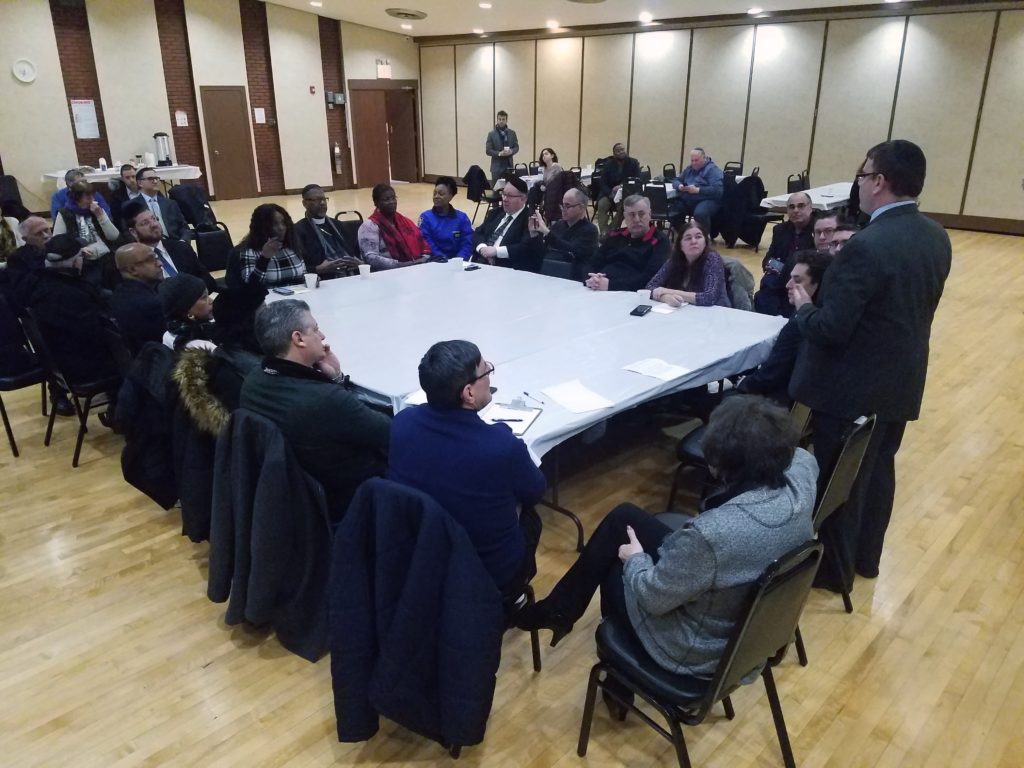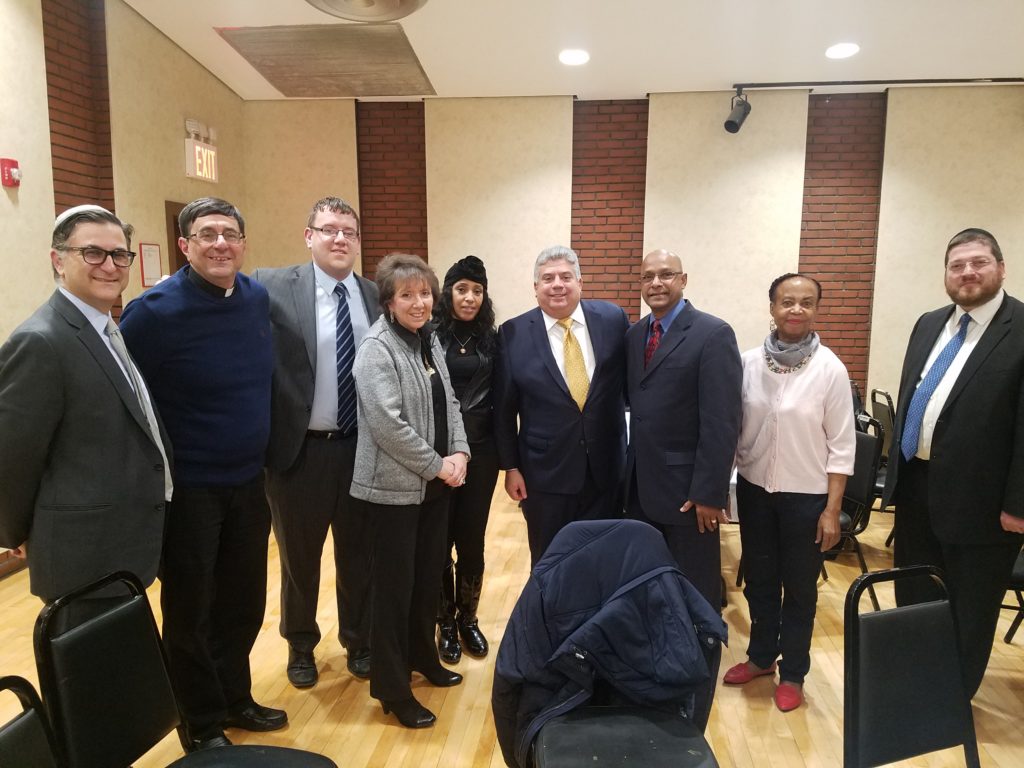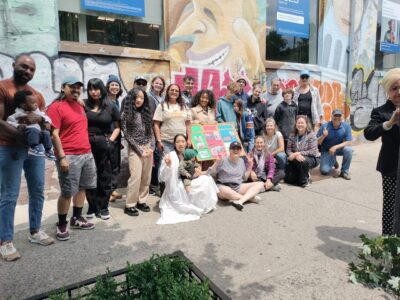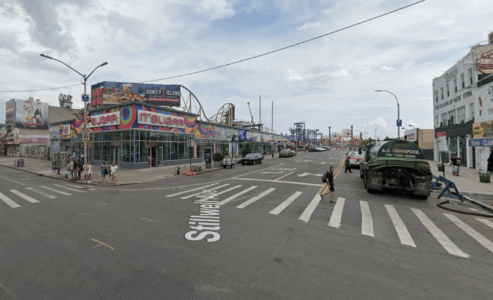FLATLANDS — “We all have the same struggles and we must understand each other. When something affects the Jewish community it affects all communities…When you hurt, we all hurt. If you bleed, we all bleed. You have to understand that and we have to make it publicly known,” said State Sen. Roxanne Persaud as she addressed a group of elected officials, members of the clergy, community leaders and precinct representatives at the “Voices Against Anti-Semitism, Bigotry and Hate” roundtable on Monday, January 20 at the Congregation Beit Hillel Synagogue at 2164 Ralph Avenue.
Mitchell Partnow, a community leader and chair of T.J. Cares, the Thomas Jefferson Democratic Club’s charity arm, organized the event. It was especially appropriate that it was held on a day celebrating Martin Luther King, Jr., and in Flatlands, an area of Brooklyn that has seen a rise in hate crimes over the past year.
Partnow thanked his mother, Sue Ann Partnow, the female leader of the 59th Assembly District, and explained that the purpose of the forum was to find ways to educate the community on how to keep safe in light of the recent spate of hate crimes being committed.

Democratic District Leader Frank Seddio makes a point.
Partnow said that he specifically wanted to hold this event on Martin Luther King Jr. Day. “This event is unfortunately necessary because there have been a lot of anti-Semitic and bias attacks in this state, in this country, in this city and in this community,” Partnow told this paper.
“So, I sat down with the elected officials and said why don’t we bring the clergy together? We have a lot of temples here, a lot of churches. Let’s bring everyone together and have an open dialogue in how to help keep everyone safe and how we can continue to work together to make sure that our community stays strong and we keep the hate out of our district,” Partnow added.
Among those attending were Persaud; District Leader Frank Seddio; City Councilmember Farah Louis; Assemblymember Jaime Williams; Bishop Nathan Williams, pastor of the Rose of Sharon Baptist Church; Rev. Cecil Moonsam, president of the 69th Precinct Clergy Council; Rabbi Yair Fine of Congregation Beit Hillel; Father Mike Tedone of St. Bernard’s Church; NYPD Crime Prevention Police Officer Jamie Jones and community leader Judy Newton, founder of the Newton Foundation, a nonprofit organization that provides aid to underprivileged families.
“We had the idea of doing this to bring together the leadership of our communities in such a way that we can educate, inform and make sure that the people of our communities are aware that we are safe here, that we are prepared to help and that we will be sponsoring different events to get the message out,” said Seddio.

District Attorney Eric Gonzalez with event organizer Mitchell Partnow.
“I listened to Martin Luther King’s speech while driving here and today was an appropriate day to do this,” he added.
Guest speakers included members of the NYPD Shomrim Society of Jewish police officers and the Simon Wiesenthal Center. Brooklyn District Attorney Eric Gonzalez was the keynote speaker.
Gonzalez said that despite the fact that anti-Semitic hate crimes have come to the forefront over the past few months, “The truth is we’ve seen it happen over the last couple of years now. That’s why earlier last year I was the first district attorney’s office in the state to put together a dedicated hate crimes bureau.”
When Louis asked specifically how the task force works, Gonzalez explained that his bureau handles all hate crimes including “anti-black, anti- Latino, anti-Muslim and LGBTQ issues that the NYPD bureau investigates.”
He further explained that last year in Brooklyn, the bureau identified 121 incidents of anti-Semitic hate crimes.
Gonzalez said that the major challenge with handling a hate crime is that you have to be able to prove that there is no other reason for the incident to have taken place. “It’s hard to prove beyond a reasonable doubt in court,” said Gonzalez. “The DA has the burden of establishing that hate was the motivating factor for the crime that took place.”

Clergy, elected officials and community leaders attend Voices Against Anti-Semitism, Bigotry and Hate roundtable.
He also cited the failure of the court system to deal with mental health issues as a factor in hate crimes. “Many of the people who commit these crimes have long and extensive mental health histories,” Gonzalez told his listeners. “A full third of those arrested for hate crimes have a long psychiatric history, and a full third of the crimes are committed by juveniles under the age of 17.”
David Klestzick, the deputy chief of the trial division in the district attorney’s office, stressed the importance of education in dealing with hate crimes and called it the cornerstone to solving many of these issues.
He offered an example of juveniles and young adults who drew swastikas on a garage. “When we actually met with these kids, we realized that they knew they had done something wrong and they wanted to cause mischief,” said Klestzick.
“They didn’t understand what a swastika meant for people who went through the Holocaust. So we sent them to the Jewish Heritage Museum and they watched a program about Auschwitz. And after that they had to write an essay about what they learned, and they were heartbroken and horrified to learn what it means to draw a swastika,” he added.
Persaud stressed the importance of having such a forum. “I think that it’s important that we have discussions about hate crimes in general so that we are all working together as a unified community,” explained Persaud.
“Too often, we operate in silos when things occur and then after that we’re not communicating with each other. But bringing everyone together, the clergy of the various denominations, allows them to take the messages back and to make everyone understand that hatred and bigotry will not be tolerated. It’s a responsibility of all of us to ensure that we can eliminate it from our communities. My hope is that this will occur after tonight’s conversation,” added Persaud.

Gonzalez summed it by saying there was a need to unify communities further. “The issues of living together and loving each other and working together — we don’t have that yet in our city the way we should have it and in the way that we need it,” explained Gonzalez.
“This fight to end anti-Semitic crimes is something we can accomplish together, and in order to do that you need to have black and Hispanic and Jewish people along with other white Gentiles walking together and saying that we won’t tolerate this in our city and we can end this. And I believe that we will end this,” added Gonzalez.

 Sunset Park residents look to form new mural at 54th Street
Sunset Park residents look to form new mural at 54th Street  Man charged with attempted kidnapping after allegedly grabbing six-year-old in Coney Island
Man charged with attempted kidnapping after allegedly grabbing six-year-old in Coney Island